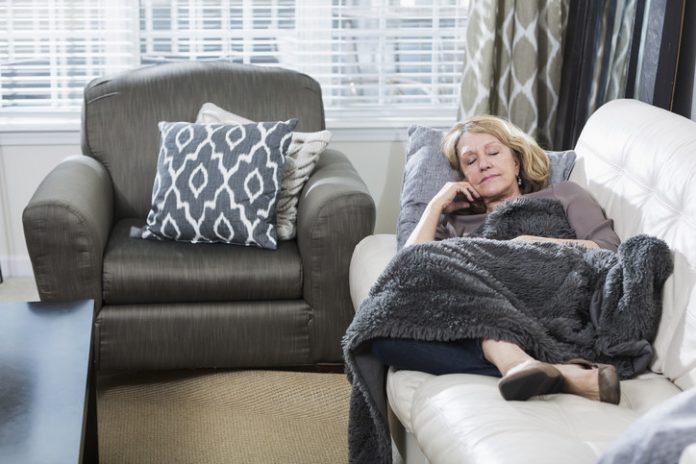Post lunch lethargy or postprandial somnolence is something we’ve all experienced at some point, some of us without even knowing it. What you eat, when you eat, how much you eat and a natural dip in your circadian rhythm (your body’s internal clock) can lead to post-meal fatigue. A self-indulgent meal, eating too late, an extra slice of that double chocolate cake for dessert or dehydration are some of the culprits.
Why does this happen?
Feeling sluggish after a meal can be a natural result of digestion patterns and sleep cycles.
Due to chemical changes in our body during digestion we tend to feel sleepy. The pancreas produces insulin to regulate blood sugar levels. The heavier the meal, the higher the production of insulin. This increase in insulin causes our body to produce hormones which get converted to serotonin and melatonin (the happy sleepy hormones) in our brain which makes us want to curl up in a ball and get some shut eye. Also once you eat, your digestive system is in overdrive, the blood flow to the intestine and stomach area is accelerated, creating a slow down for the rest of the body or a phenomenon referred to as postprandial or functional hyperemia. Skipping lunch in the middle of a work day so you dont feel the dip is not an option for obvious health reasons but you can definitely control the sluggishness that follows.
Here are a few tips and tricks to avoid feeling drowsy post lunch —
Get a good night’s sleep —
Sleep deprivation or disturbed sleep can pronounce sleepiness after lunch. A person who gets enough sleep at night is less likely to experience this post lunch energy dip. A cup of coffee could help, but if you decide to tough it out this drowsy period will pass once the circadian rhythm of your body revs up again. If you sleep well at night, post lunch lethargy won’t hit you as hard.
Stay hydrated —
Drink enough water 30 minutes before and after your meal. Drowsiness is often a sign of dehydration. Dehydration can cause fatigue, a low mood and even difficulty in concentrating. Make sure you are drinking enough water throughout the day. Water is essential for your body to function properly, so make sure you load up on some good old water and watch you dump that post lunch slump!
Portion control —
After a voracious lunch a snooze sounds like the perfect idea as long as it’s not an everyday scenario. A large, heavy meal often slows down digestion and can leave you with an uncomfortable bloated feeling. Eating small but frequent meals can help combat post lunch lethargy. A handful of nuts or a piece of fruit should be enough to give you an energy boost. Eat little and often!
Bright-light therapy —
Exposing yourself to bright light after lunch reduces your tiredness and lethargy.
Stay active —
A ten minute walk after eating or light exercise (wait for twenty minutes after eating) will surely release the right amount of endorphins to kick post lunch lethargy to the curb.
Eat healthy —
Refined grains and processed foods get digested quickly which causes your blood sugar to spike and fall. This dip contributes to low energy levels thereafter. Choose to eat more energising foods like leafy veggies, green veggies, eggs, lean proteins like meat and fish, legumes and whole grains. Avoid junk food at all costs.
Avoid drinking alcohol, sugar and fat —
Sugar and fat present in processed foods and a high alcohol intake causes an energy crash. While it may give you an initial energy boost it wears off quickly leaving you extremely fatigued. Alcohol with an afternoon meal is a big NO!
Eat iron rich foods —
Foods packed with iron, protein and complex carbohydrates are a big YES for lunch. Iron increases the production of haemoglobin in the body which carries oxygen throughout the body for energy. Carbohydrates deliver glucose to various parts of the body thus fueling the body and helping it function smoothly. A nutritious meal is always the answer to avoid feeling sluggish after a meal. A well balanced meal is the key to a productive day.
Be aware of your diet and timings —
Keep track of what you eat during lunch time. If certain foods lead to an energy dip look for alternatives to keep your energy levels high. Be punctual- eating your meal late in the afternoon is a definite no no. Have your meal between 1pm and 3pm to keep the post lunch blues at bay.
To conclude-
These simple yet effective tips will definitely help you avoid your afternoon siestas.
If your post lunch lethargy seems to be getting in the way of your daily life and activities, it might be time to change the contents of your meal by eliminating sleep inducing foods. If that doesn’t seem to help it might be beneficial to visit a doctor.
It’s time to say goodbye to your post lunch dip!








